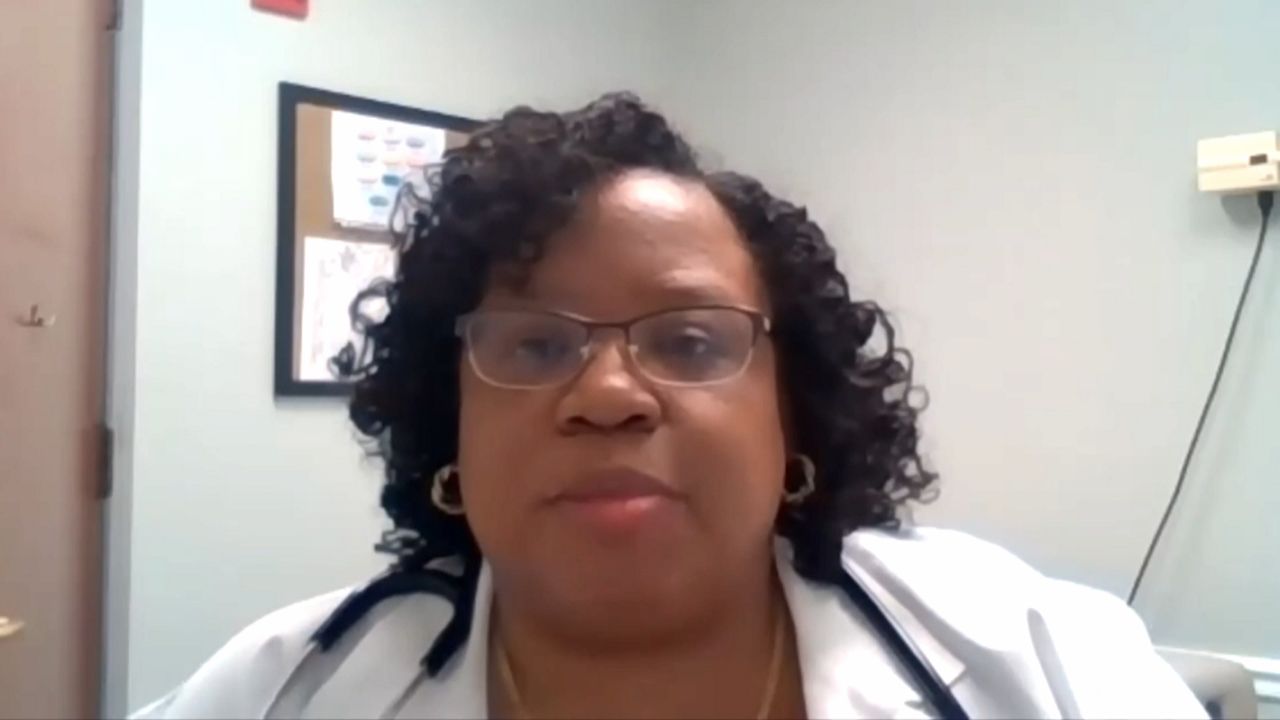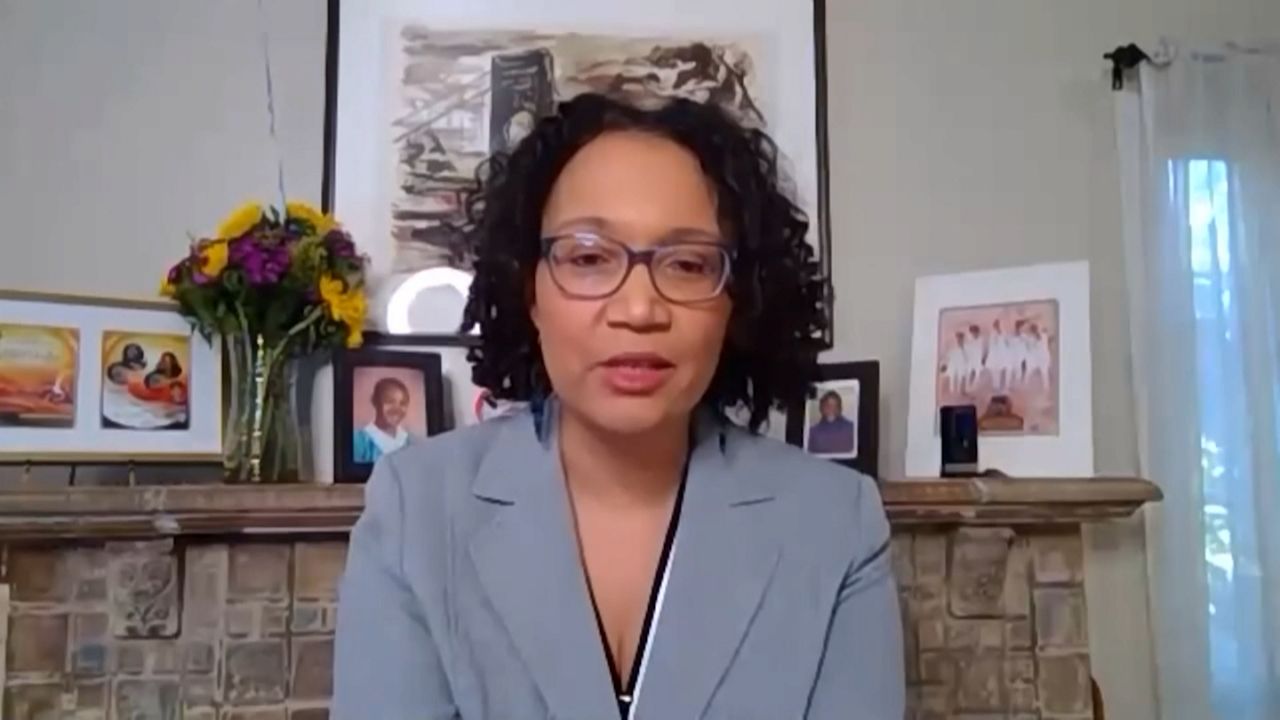NEW YORK — Dr. Michele Reed is accustomed to talking with patients, not a camera.
However, after her COVID-19 diagnosis one year ago this month, she was forced to shut down her practice in Queens. A video diary empowered Dr. Reed to share the reality of COVID-19, every step of the way.
After making a full recovery, Dr. Reed reopened her family practice in Rosedale, Queens. But her absence was deeply felt. Dr. Reed is among a small group of Black women physicians who represent only 2% of all doctors in the United States.
What You Need To Know
- According to the Association of American Medical Colleges, 64% of active physicians are male, and 56% are white
- Black Americans make up 13% of the U.S. population, but only 4% of the active physician workforce
- According to the Association of American Medical Colleges, 2% of physicians identify as Black women
“I was on the Dean’s List,” Dr. Reed said, reflecting on her time in college, “and then being told, when it was time to get a letter from my academic advisor, 'It’s better maybe you go into Africana Studies instead of being a doctor.'”
Dr. Jocelyn Myers can relate. She grew up in Queens Village, and always dreamed of becoming a doctor, but she didn’t have many role models.
"There was a lot of, 'Well, are you sure that you want to be a doctor? Why not social work or nursing?' Because I wasn’t supposed to be a doctor," Dr. Myers said.
Dr. Myers is featured in the book: “Against All Odds: Celebrating Black Women in Medicine.”
She’s also a founding member of Mocha Medicine, an online support and mentoring group.
“It’s necessary because there’s so few of us, and so many times we are the only one where you are," Dr. Myers added.

Dr. Cozzette Lyons-Jones, the president of The Association of Black Women Physicians, said the coronavirus pandemic has revealed widespread gender and racial disparities in health care.
“We’re dying more from COVID-19. And when you’re not in tune to the biases, in the equipment, in the system — and even in the training and background of a person there is a concordance by race and gender — then you leave room for leakage,” Dr. Lyons-Jones said. “You leave room for people who get lost in the system and they don’t get the care that they need until its too late.”

Dr. Reed said that during her battle against COVID-19, her video diary was not a vanity project, rather a call to action.
“You saw what I went through. I don’t want anyone to have to go through what I went through,” Dr. Reed said. “So what are you doing this past year to change that trajectory?"
Dr. Reed wants to see change not just for patients, but also in the representation of the doctors who serve them.
------
Did you know you can now watch, read and stay informed with Spectrum News wherever and whenever you want? Get the new Spectrum News app here.



